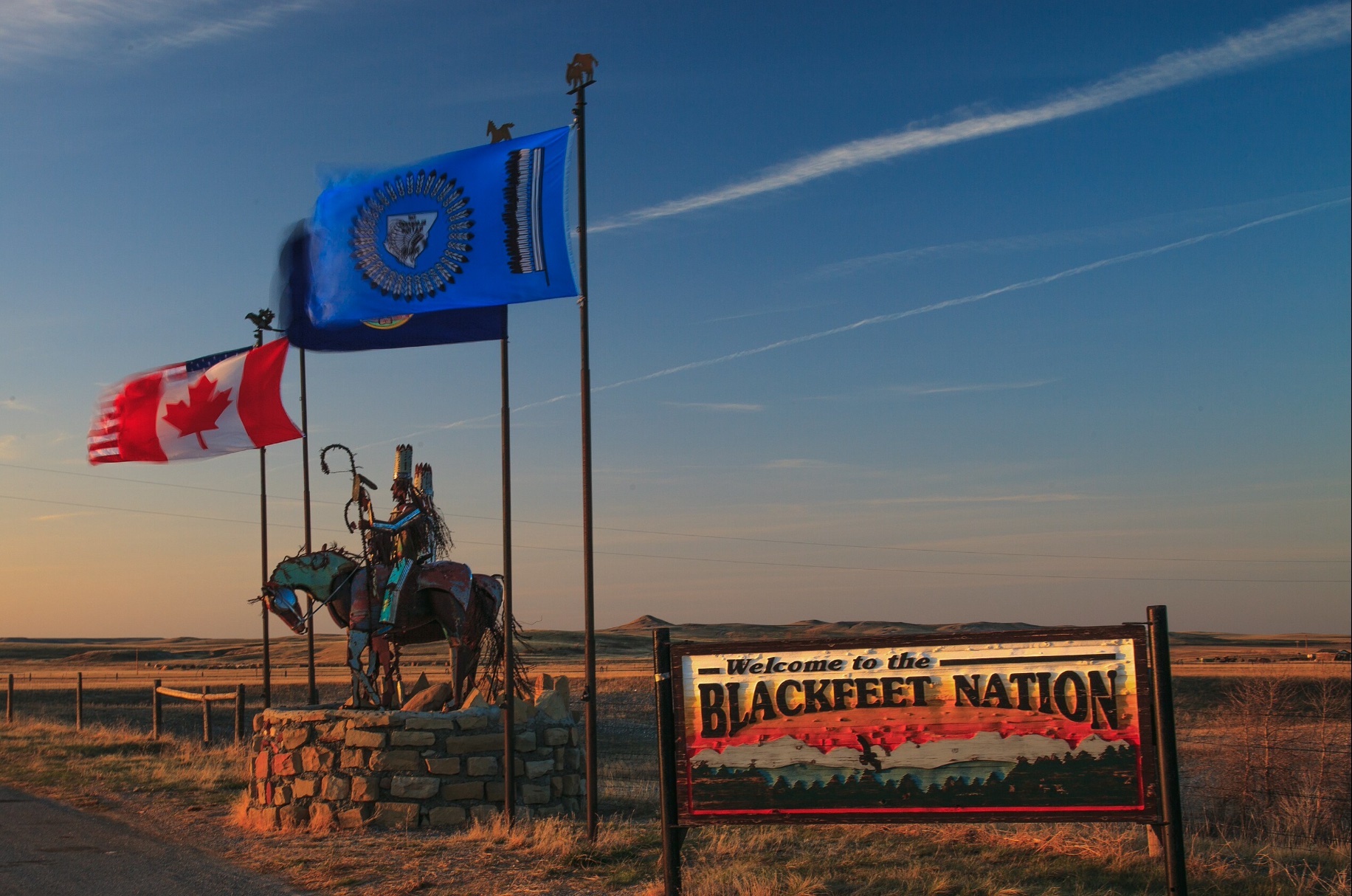The Blackfeet Tribe is asking the US Supreme Court for a seat at the table in a high-stakes tariff case that could reshape cross-border commerce.
Members of the Blackfeet Nation, along with Montana representatives, have petitioned the Court to let them intervene in litigation challenging President Trump’s tariffs on Canadian goods. They argue the tariffs “directly burden cross-border commerce” for tribal businesses and ranches that rely on trade across the US-Canada border.
The 17,000-member tribe is headquartered in Browning, Montana, on the Blackfeet Indian Reservation, about 30 miles south of the Canadian border. Established by treaty in 1855, The Blackfeet Indian Reservation shares a boundary with Canada, and leaders say the tariffs disrupt agricultural, ranching, and retail operations that depend on cross-border movement of goods and services. Their filing seeks permission to present oral arguments to ensure tribal interests are represented in the Court’s decision-making.
The Blackfeet Nation is no stranger to courtroom battles over economic sovereignty. In the early 1980s, the tribe fought Montana over taxation of oil and gas production on tribal lands. A federal district court in 1981 ruled that the state could impose such taxes, and although the case eventually reached the Supreme Court, the broader questions of state versus federal authority over tribal economic activity were left unresolved.
In the current dispute, tribal leaders argue that tariffs imposed by Washington are not just abstract trade policy, but policies with immediate and disproportionate effects on Native communities situated along the border.
The Supreme Court has not yet ruled on whether the Blackfeet Tribe will be allowed to intervene.
